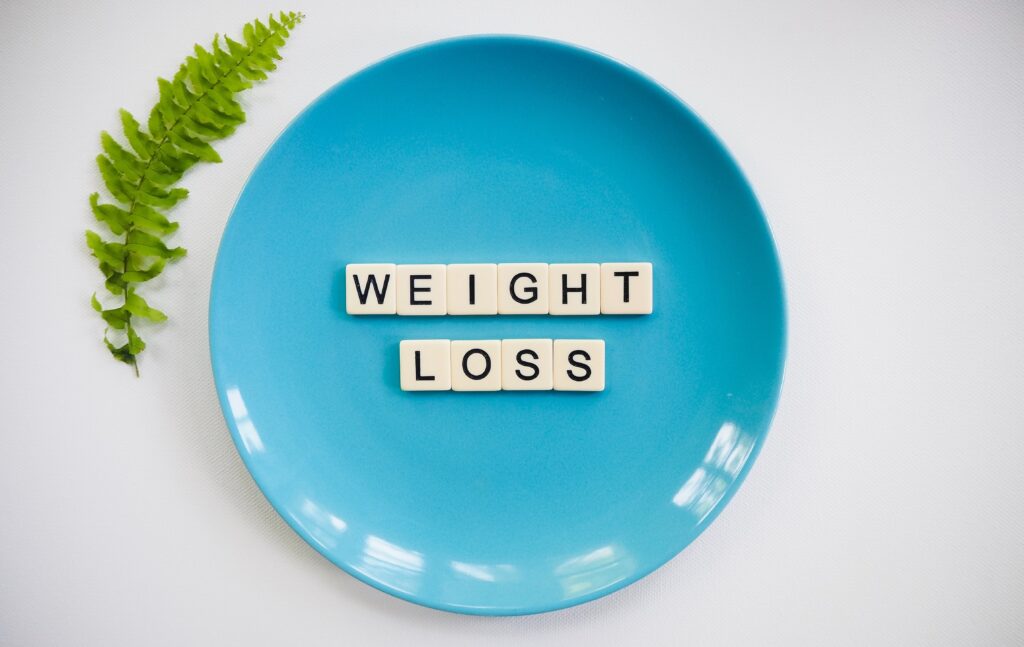Introduction
Struggling to lose weight can feel like an uphill battle. You exercise for hours every week, but the scale just won’t budge. Or, even worse, you start to see your hard-earned progress slowly disappear.
If this sounds familiar, don’t give up just yet. Losing weight is possible if you approach it in the right way. In this blog post, we will share six proven tips that will help you finally reach your weight loss goals.
1. Find your motivation
- Are you trying to improve your health?
- Are you trying to fit into a wedding dress?
- Are you trying to boost your confidence?
Once you have identified your motivation, it will be easier to stay on track when the going gets tough.
2. Set realistic goals
The second step is to set realistic goals. If you set your sights too high, you are more likely to get discouraged and give up. Instead, focus on setting small, achievable goals that you can gradually work towards. For example, instead of saying “I want to lose 30 pounds in 3 months,” try saying “I want to lose 10 pounds in 1 month.”
3. Create a healthy diet plan
The third step is to create a healthy diet plan. This doesn’t mean that you have to deprive yourself of all your favorite foods.
However, it does mean that you need to be mindful of what you are eating and make sure that most of your meals are packed with nutrients.
There are many resources available online that.
Cut Out processed foods and eat more whole foods
If you’re looking to lose weight, one of the first things you should do is cut out processed foods. Processed foods are often high in calories and low in nutrients, making them a poor choice for those trying to lose weight. Instead, focus on eating more whole foods.
Whole foods are typically higher in nutrients and lower in calories, making them a better choice for weight loss.
Plus, they’re often more filling than processed foods, so you’ll be less likely to overeat.
Get enough sleep
Sleep is important for both physical and mental health. When you’re sleep-deprived, your body releases more of the stress hormone cortisol, which can lead to weight gain. Additionally, sleep deprivation can make you feel more hungry and less satisfied after eating, leading you to eat more. Make sure you’re getting enough sleep by going to bed at a reasonable time and waking up at a reasonable time. If you have trouble sleeping, talk to your doctor about possible solutions.
Exercise regularly
Exercise is one of the most effective ways to lose weight and keep it off. When you exercise, your body burns calories.
The more intense the exercise, the more calories you’ll burn. Additionally, exercise can help you build muscle, which can help you burn more calories at rest. Aim to get at least 30 minutes of exercise each day.
If you can’t fit in a full 30 minutes, try breaking it up into smaller chunks of time throughout the day.
Incorporate more protein into your diet
Protein is an essential macronutrient for weight loss. It helps to keep you feeling fuller for longer, stabilizes blood sugar levels, and helps to build and maintain lean muscle mass. Incorporating more protein into your diet can help you lose weight in a healthy and sustainable way.
- There are many ways to increase your protein intake.
- You can add protein-rich foods to your meals and snacks, or you can take a protein supplement.
- If you’re not sure how much protein you need, talk to a Registered Dietitian or your healthcare provider.
Try a high protein diet
A high protein diet can help you lose weight and keep it off. It can also help you build lean muscle mass, which can increase your metabolism. If you’re interested in trying a high protein diet, talk to a Registered Dietitian or your healthcare provider first. They can help you create a plan that’s right for you and make sure you’re getting the nutrients you need.
Cut down on refined carbs
Refined carbs are found in processed foods like white bread, white rice, and pastries.
They’re high in calories but low in nutrients, so they’re not a good choice if you’re trying to lose weight.
Cutting down on refined carbs can help you lose weight, improve your blood sugar levels, and reduce your risk of heart disease.
Eat more fiber-rich foods TO Lose Weight
When it comes to weight loss, there is no one-size-fits-all solution. However, there are certain proven tips that can help you lose weight in a healthy way. One of the most important things you can do is to eat more fiber-rich foods.
Fiber is an indigestible type of carbohydrate that helps promote fullness and weight loss in a few different ways. First, fiber slows down the emptying of the stomach, which helps you feel full for longer after eating. Second, fiber binds to water and creates a gel-like substance in the intestine, which also helps promote fullness.
There are two types of fiber: soluble and insoluble. Soluble fiber dissolves in water and is found in oats, legumes, fruits, and vegetables.
Insoluble fiber does not dissolve in water and is found in whole grains, nuts, and seeds. Both types of fiber are important for weight loss.
The best way to increase your fiber intake is to eat more whole fruits, vegetables, and whole grains.
You should also make sure to drink plenty of water throughout the day to stay hydrated and help your body properly digest the fiber you’re consuming.
Drink plenty of water

Water is essential for weight loss. It helps to flush out toxins, reduce bloating, and boost energy levels. Aim to drink eight glasses of water per day, or more if you are exercising frequently.
In addition to drinking plenty of water, you can also eat water-rich foods such as cucumbers, tomatoes, and watermelon. These foods will help to keep you hydrated and feeling full.
Get enough sleep
If you are not getting enough sleep, it can be difficult to lose weight. Lack of sleep can lead to cravings for unhealthy foods and make it harder to resist temptation. It can also cause you to feel more tired during the day, making it difficult to exercise.
Aim to get seven to eight hours of sleep per night. If you have trouble sleeping, try avoiding caffeine in the afternoon and evening and establish a regular sleep routine.
Manage stress
Chronic stress can lead to weight gain. When you are stressed, your body releases the hormone cortisol. This hormone can increase your appetite and cause you to crave sugary or fatty foods. It can also lead to overeating or emotional eating.
To manage stress, try relaxation techniques such as yoga or meditation. You may also want to consider talking to a therapist if your stress is affecting your quality of life.
Avoid sugary drinks

When it comes to weight loss, one of the first things you should do is avoid sugary drinks. This includes sodas, juices, and even some types of sports drinks.
The reason sugary drinks are so harmful is because they contain a lot of empty calories. These are calories that don’t provide your body with any nutritional value. All they do is add extra weight to your waistline.
In addition to being high in calories, sugary drinks can also lead to cravings for other foods. So if you’re trying to lose weight, it’s best to avoid them altogether.
There are plenty of other beverages you can choose from that are much healthier for you and will help you reach your weight loss goals. Water, unsweetened tea, and black coffee are all great options.
Get enough sleep
- Another important factor in weight loss is getting enough sleep. When you’re sleep-deprived, your body doesn’t function as well. This can lead to cravings for unhealthy foods and make it harder to stick to your diet.
- Getting enough sleep is also important for your overall health. It helps improve your mood, memory, and concentration. So if you’re not getting enough rest, it’s time to make some changes.
- There are a few simple things you can do to make sure you’re getting enough sleep each night. First, avoid caffeine in the evening. It can take several hours for caffeine to wear off, so it’s best to avoid it after lunchtime.
Second, establish a regular sleep schedule and stick to it as much as possible. Go to bed and wake up at the same time each day, even on weekends. This will help regulate your body’s natural sleep rhythm and make it easier to fall asleep at night.
Finally, create a relaxing bedtime routine that will help you wind down before going to sleep. This might include reading a book or taking a warm bath.
Lose Weight Exercise regularly
There are many benefits to exercising regularly, including weight loss. To lose weight, you need to burn more calories than you consume. Exercise can help you burn more calories and improve your metabolism so that you lose weight in a healthy way.
- Aerobic exercise is the best type of exercise for weight loss. It includes activities like walking, running, and swimming.
- These activities raise your heart rate and make you sweat.
- They also help to build muscle and improve your endurance.
strength training is also important for weight loss. It helps to tone your muscles and make them stronger. This type of exercise can also help to boost your metabolism so that you burn more calories throughout the day.
It is important to find an exercise routine that works for you and stick with it. You may need to try different types of exercise before you find one that you enjoy and that helps you lose weight. Start slowly and gradually increase the intensity of your workouts as you become more fit.
Lose Weight Get enough sleep
It’s no secret that getting enough sleep is important for overall health and well-being. But did you know that getting enough shut-eye can also help you lose weight?
That’s right, according to a recent study, people who got more than 7 hours of sleep per night were more successful in losing weight and keeping it off than those who slept for less than 7 hours.
So if you’re looking to lose weight, make sure you’re getting enough sleep!
Eliminate sugary drinks
Sugary drinks are one of the worst things you can consume if you’re trying to lose weight. They’re high in calories and sugar, and they can lead to cravings for other unhealthy foods.
If you’re serious about losing weight, eliminating sugary drinks from your diet is a good place to start. There are plenty of other beverages you can choose from that are much healthier for you and will help you reach your weight loss goals. Water, unsweetened tea, and black coffee are all great options.
Manage stress levels
1. Manage stress levels:
It is important to manage stress levels when trying to lose weight. Stress can lead to emotional eating and make it difficult to stick to a healthy diet. There are many ways to manage stress, such as yoga, meditation, and exercise.
Find what works best for you and make sure to incorporate it into your weight loss plan.
2. Avoid processed foods:
Processed foods are high in calories and low in nutrients. They can also lead to cravings and overeating. Instead, focus on eating whole, unprocessed foods. These include fruits, vegetables, lean proteins, and healthy fats.
3. Get enough sleep:
Sleep is important for overall health and can also help with weight loss. Lack of sleep can lead to cravings and overeating. Make sure to get at least 7-8 hours of sleep each night.
4. Drink plenty of water:
Water is essential for good health and can also help with weight loss. It helps to keep you hydrated and can reduce cravings. aim to drink 8 glasses of water each day.
5. Avoid sugary drinks:
Sugary drinks are high in calories and can lead to weight gain. Instead, opt for water or unsweetened tea or coffee.
Lose Weight Finishing Tips
Losing weight can be difficult, but there are some proven tips that can help. Here are some finishing tips to help you lose weight:
1. Set realistic goals. It is important to set realistic goals when trying to lose weight. If you set goals that are too high, you may become discouraged and give up. Goals that are too low may not give you the motivation you need to stick with your weight loss plan.
2. Find a support group. There are many groups available to help people lose weight. These groups can provide support and encouragement, which can be helpful when trying to lose weight.
3. Make a plan. Once you have set your goals, it is important to make a plan of how you will reach them. This plan should include what changes you will make to your diet and exercise routine. It is also important to set a timeline for reaching your goals.
4. Stick with it! Weight loss takes time and effort, so it is important to stick with your plan even when you feel like giving up. Remember why you want to lose weight and keep moving towards your goal!
5. Reward yourself. When you reach your weight loss goals, be sure to reward yourself! This will help you stay motivated and on track.









